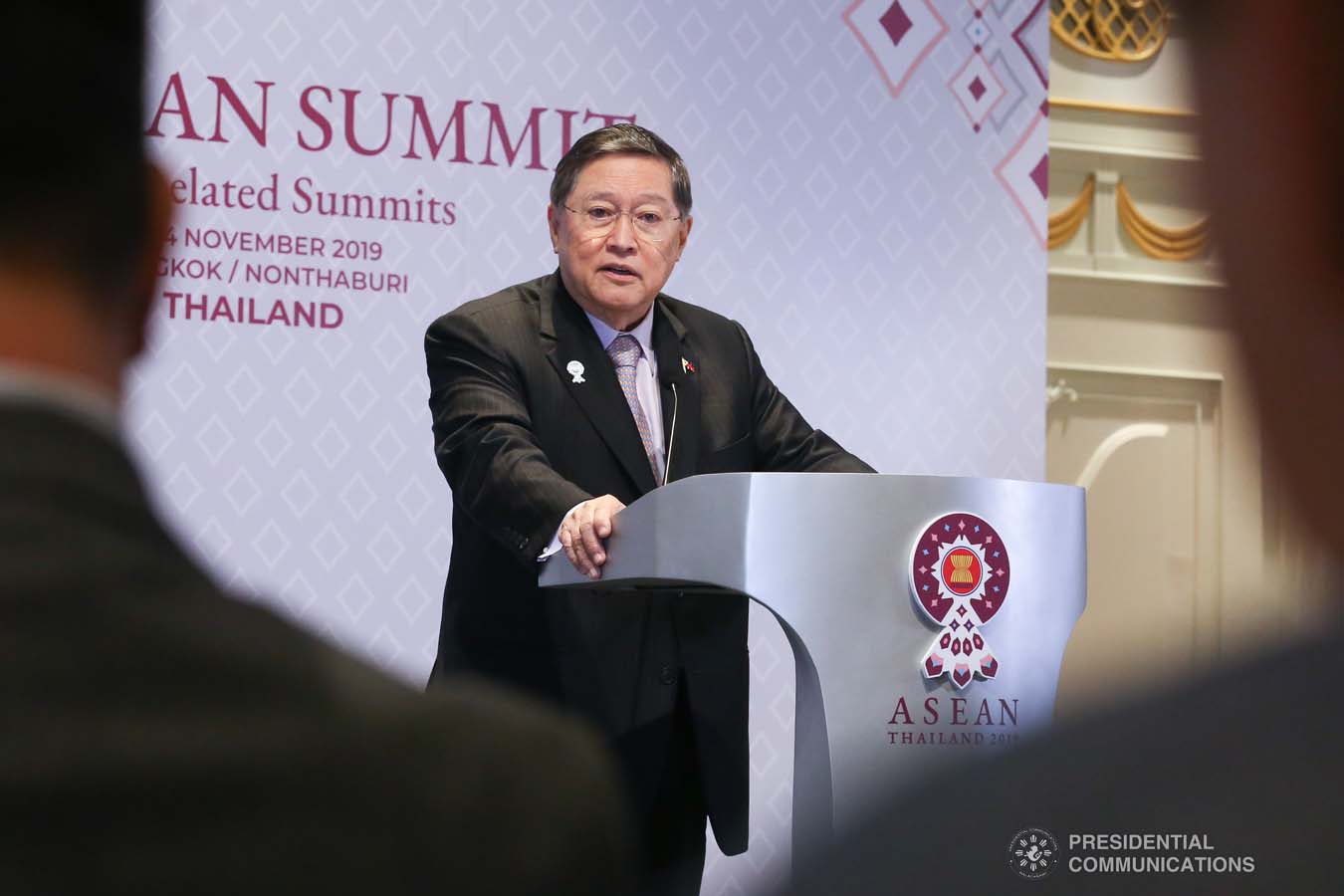Business and Economy
PH has ability to pay obligations: DOF chief

FILE: Finance Secretary Carlos Dominguez III holds a press conference at the Impact Challenger in Nonthaburi, Thailand on November 4, 2019. ALBERT ALCAIN/PRESIDENTIAL PHOTO
– Department of Finance Secretary Carlos Dominguez III has expressed confidence on the government’s ability to pay loans used to address the impact of the pandemic.
In his speech during the webinar titled “Philippines as Pathway to Asia in Post-Pandemic World” hosted by the Philippine embassy in Washington DC on Friday, Dominguez said fighting the pandemic is costly since the government needs to extend subsidies to workers affected by the movement restrictions, as well as ensure additional funds for other social protection programs, among others.
He said the emergency cash grants extended to 18 million low-income families and the subsidies for about three million small business workers alone cost the government some USD5 billion.
Dominguez said the government was able to secure around USD10.1 billion worth of loans from development partners and commercial fund sources to finance coronavirus disease (Covid-19) response programs.
“Fortunately, the Philippines quickly accessed emergency loans from our development partners and commercial markets at very low rates, tight spreads, and longer repayment periods. With our enduring financial strength, we will meet these obligations,” he added.
Dominguez said fiscal discipline that the Duterte administration implemented since taking charge of the government in mid-2016 allowed it to have the funds for its priority infrastructure program and social protection programs, among others.
“As a result, we were able to bring up our revenue effort to 16.1 percent of GDP (gross domestic product) in 2019 from 15.1 percent in 2015. This is our best performance in more than two decades,” he said.
The current government bids to increase infrastructure spending to over 5 percent of domestic output to ensure that growth will be sustainable.
Last year, investments on infrastructure projects accounted for about 5.4 percent of GDP, twice the level compared to the figures in the last five decades.
“Little did we know that our financial build-up would serve to buttress our defenses against economic shocks,” Dominguez said.
He said these measures helped the government bring down the debt-to-GDP ratio to a record-low of 39.6 as of 2019, allowing it to post the lowest external debt position among Asean-5 countries.
The country received its highest investment grade credit rating so far at BBB+, posted the lowest poverty incidence at 16.7 percent, reduced the unemployment rate to 4.5 percent and the underemployment rate to 13 percent.
“In other words, without this global economic crisis, we had realized better economic outcomes for our people. Our economy was ready to roar,” he said.
Dominguez said continued fiscal discipline will continue to prove the economy’s resiliency and prevent future generations from being buried in huge debt.
He said the government bids to have a deficit-to-GDP ratio that is in the middle of the range in the Association of Southeast Asian Nations (Asean).
“The battle against Covid-19 is going to be a marathon, not a sprint. We need to maintain our fiscal stamina. We should have ample ammunition to outlast this enemy,” he added.





















